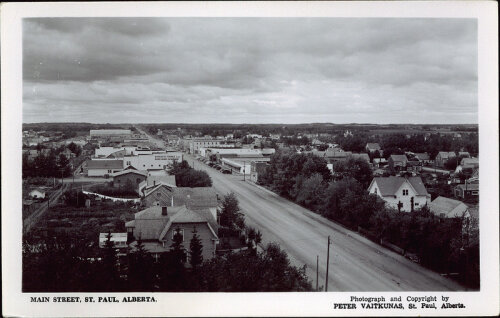Best General Litigation Lawyers in St. Paul
Share your needs with us, get contacted by law firms.
Free. Takes 2 min.
List of the best lawyers in St. Paul, Canada
Canada General Litigation Legal Articles
Browse our 1 legal article about General Litigation in Canada written by expert lawyers.
- How to Claim Personal Injury Damages in Ontario Canada
- Victims have two years from the date of the accident to initiate a lawsuit against the at-fault driver in Ontario. Ontario uses a hybrid system where you receive immediate "no-fault" benefits regardless of who caused the crash, while also retaining the right to sue for additional damages. To successfully sue... Read more →
About Litigation Law in St. Paul, Canada
Litigation in St. Paul, Canada refers to the process of taking legal action or resolving disputes through the court system. It encompasses various types of legal disputes, including civil, commercial, and sometimes family law matters, among others. The goal is to effectively and fairly resolve conflicts within the legal framework established at both the provincial and federal levels. St. Paul, like other parts of Alberta, adheres to the rules and regulations that govern litigation proceedings in Canada, ensuring that justice is served and legal rights are protected.
Why You May Need a Lawyer
There are many situations where individuals or businesses may require legal help in the field of litigation. Common scenarios include disputes over contracts, property disagreements, personal injury claims, employment conflicts, and other civil matters that can escalate beyond informal resolution. A lawyer can provide crucial assistance by offering legal advice, representing clients in court, drafting necessary legal documents, and negotiating settlements that may avoid the need for trial.
Local Laws Overview
In St. Paul, and more broadly Alberta, litigation is directed by both provincial and federal legal frameworks. Key aspects include the Alberta Rules of Court, which dictate the procedures for civil cases, and local bylaws relevant to specific legal disputes. Additionally, the Alberta Evidence Act and the Limitations Act play significant roles in litigation, outlining what is admissible in court and the time frames within which legal action must be initiated. Familiarity with these laws is essential for effective litigation.
Frequently Asked Questions
What types of cases fall under litigation?
Litigation cases in St. Paul can include civil disputes, such as breach of contract, tort claims, property disputes, and employment issues.
How long does a litigation process take?
The length of the litigation process can vary significantly, ranging from a few months to several years, depending on the complexity of the case and court schedules.
What are the costs involved in litigation?
Costs can include court fees, attorney fees, and other related expenses. It's essential to discuss potential costs with a lawyer upfront.
Can I represent myself in court?
While individuals have the right to self-represent in court, it is often not advisable due to the complexity of legal procedures and the potential implications of the case outcome.
How can I find a litigation lawyer in St. Paul?
Start by consulting the Law Society of Alberta's directory and seeking referrals from trusted sources or local legal aid services.
What should I do if I receive a lawsuit notice?
Seek legal advice immediately to understand your rights and responsibilities, and to formulate an appropriate response.
What is the alternative to going to court?
Alternatives include mediation or arbitration, which can be less formal and less expensive than a court trial.
What documents are necessary for litigation?
Necessary documents may include contracts, correspondence, emails, financial records, and any other evidence pertinent to the dispute.
What happens if I lose my case?
If you lose, you may be required to pay the other party's legal costs, and you might have the option to appeal the decision under certain conditions.
Are there any time limitations for commencing litigation?
Yes, the Limitations Act outlines specific time limits for different types of claims, typically ranging from 2 to 10 years. It's crucial to act within these timelines.
Additional Resources
For additional assistance, consider contacting the Law Society of Alberta, Alberta Courts, or local legal clinics. These organizations can provide resources, guidance, and potentially some pro bono services for qualified individuals.
Next Steps
If you believe you need legal assistance in litigation, start by gathering all relevant information and documents. Reach out to a qualified litigation lawyer in St. Paul to discuss your case and determine the best course of action. Use trusted resources like the Law Society of Alberta to find a reputable attorney and ensure you are informed of your rights and options moving forward.
Lawzana helps you find the best lawyers and law firms in St. Paul through a curated and pre-screened list of qualified legal professionals. Our platform offers rankings and detailed profiles of attorneys and law firms, allowing you to compare based on practice areas, including General Litigation, experience, and client feedback.
Each profile includes a description of the firm's areas of practice, client reviews, team members and partners, year of establishment, spoken languages, office locations, contact information, social media presence, and any published articles or resources. Most firms on our platform speak English and are experienced in both local and international legal matters.
Get a quote from top-rated law firms in St. Paul, Canada — quickly, securely, and without unnecessary hassle.
Disclaimer:
The information provided on this page is for general informational purposes only and does not constitute legal advice. While we strive to ensure the accuracy and relevance of the content, legal information may change over time, and interpretations of the law can vary. You should always consult with a qualified legal professional for advice specific to your situation.
We disclaim all liability for actions taken or not taken based on the content of this page. If you believe any information is incorrect or outdated, please contact us, and we will review and update it where appropriate.








